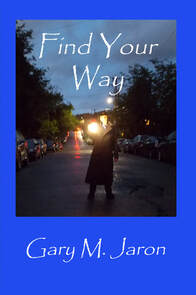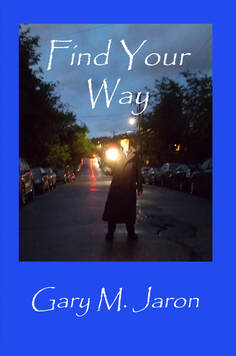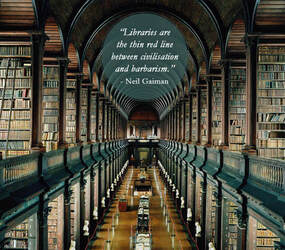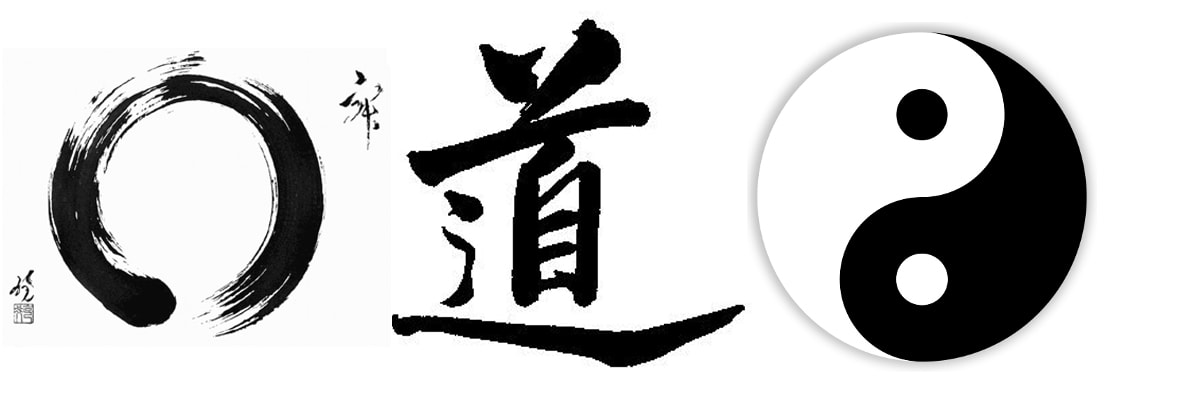 Dear Reader, How should you approach reading this book? Well it is a book-of-ideas, more about that later, but it means that the specific facts are meant to bolster the presentation of the ideas and it is all not meant to be memorized. It is intended to inspire and effect how you feel and think. When you come upon complex or difficult sections, just blow through them and don’t worry about getting it. Let the words wash over you and if you don’t seem to understand what is being said—it’s no big deal. Books like this one are meant to be experienced and re-read later on after you have had a chance for the ideas to percolate in your unconscious for a while. If I have done my job right, you will be affected and will start to pick up on my ideas sort of subliminally. Then later, after months or a year or more goes by, pick it up again and you might be surprised that more of it makes sense on the next read through. I consider myself a philosopher, a lover of wisdom. I use this term, philosopher, in the classic sense harkening back to Pythagoras, who is said to have coined the term. I believe that a philosopher is interested in wisdom of how to live a fulfilled life, rather than examining the world to make it knowable. The thinker who is concerned with trying to make something understandable is the kind of philosopher who follows in the footsteps of Aristotle. Aristotle’s endeavors led to those thinkers who are more lovers of acquiring insight into the workings of the cosmos than lovers of wisdom. One could call perhaps call them philo/lovers of – episteme/knowledge to distinguish them from the philo/lovers of –sophie/wisdom. Hence, Socrates and Pythagoras were philosophers while Aristotle was a philoepistemer. (The Greek word Episteme is etymologically derived from the Ancient Greek word ἐπιστήμη for knowledge or science, which comes from the verb ἐπίσταμαι, ‘to know’.) At a young age I had a mystic event that has guided my life ever since. I wish to present my wisdom tradition that is the findings of my life’s efforts, and that is what is contained in this book. I will eventually offer you a bit of biography, to give you a context, so you have some idea who am, and how I came to be, and believe what I do. The first section of this book tells my story and the making of this book, then I present my pragmatic orienting system, next is a set of commentary, and after that some essays that show you how I apply this system. In the last section of the book, I will offer some inspirational truths that have helped me to find my way. I hope that all of this will help to guide you to find your way.
0 Comments
 I opened this book with five quotations, and now I will take the time to reflect on the reasons for them. Let us begin with Rabbi Tarfon: It was recorded that he taught the following. ‘It is not your duty to finish the work, but you are not at liberty to neglect it.’ Life seems to present us a series of tasks, and the scale of them varies. Some of these tasks are as immediate as a homework assignment or a pile of dirty dishes. Others are the care for a loved one, or the pleasure of being in a loving relationship with another. These are open-ended and ongoing. Others are large goals that you have taken on, like obtaining a degree, or some creative endeavor. Additionally, I have presented the Rabbis’ idea of Tikkun Olam, the healing of the world, and how we all play our part in this. When it comes to contributing to the wellbeing of others and the world as a whole, they are not meant to be goals with an end; they are ongoing work. Tarfon urges us not to be discouraged. We all have a part to play, but the finalization of the work is not the point; it is the willingness to try that is important. He, like the proverbial Jewish mother, reminds us of our duty to our sense of self and our duty to our community. We must not neglect either. This leads me to the saying of Rabbi Hillel. He taught that, If I am not for myself, who will be? If I am for myself alone, what am I? And if not now, when?’ He teaches us a simple truth; it all starts with the self. We have to care for, respect, honor, and love ourselves. It is only from a position of health and strength that we will be able to be of service to others. Each of us has the immediate responsibility to be concerned with ourselves. If we do not show that we are worth considering, who else will? But, he says, if we are for only ourselves, what are we? Self-centered? Self-absorbed? Selfish? We do not live in isolation. We are a part of a community. If we are egocentric to the extreme, then what has happened to us? If we put ourselves above all others, have we not become, at worst cruel, or merely uncaring? Thus we need to harmonize and balance these non-oppositional dual commitments to ourselves and to others. Lastly, Rabbi Hillel teaches that this is not something that can wait for a better day. The better day will never arrive. The day to start is today. We need to act here and now. It all begins now. To help ourselves, we must ponder the challenge that Socrates and Thales proposed. ‘The most difficult thing in life is to know thyself.’ Thales (624 BCE-546 BCE)[1] ‘The unexamined life is not worth living.’ Socrates (469BCE-399 BCE)[2] [1] (Breverton 2009, 9) Attributed by Diogenes Laertius, (circa 200 BCE) in his Lives and Opinions of Eminent Philosophers to the philosopher Thales ,(635/620-546/543 BCE) [2] Plato, Apology, 38a We must examine our life by considering the origins of our thoughts and beliefs. It is from gaining insight into who we are that we can know what we can do. This is what I have been trying to teach, to offer you tools that will give you insight into the forces that shaped you. Lastly, I believe that life is not linear. There is not one single path laid out before us in an unchanging situation. We change over time, and thus opening up many diverse and divergent paths. I believe we should be open to doubt and inspiration. This is the teaching of Carl Jung and the meaningful coincidences of synchronicity. Look around with eyes, ears, and hearts open. Recall that unexpected invitations are dancing lessons from the Divine. Do not be afraid to take time to dance. And, it is all right and even renewing to meander about and enjoy ourselves along the way. This brings to mind the pleasant wisdom of my childhood ‘friend’, Winnie the Pooh. He, with his Taoist simplicity, accomplished many things that direct action by itself did not achieve. One could think of him as you recall what J. R. R. Tolkien: wrote; ‘Not all those who wander are lost.’ May you find your way.  u would think it was as simple as opening it up and just doing it...but it can be a bit more complicated. A work of fiction is that simple...you start by looking at the cover, front and back, to see if it connects with you. If it does, you do what the Red Queen told Alice- begin at the beginning and go on till the end. Of course, some of us like spoilers and we cheat by taking a peek at the end of the book even as we are reading the beginning...but that might just be me. A work of non-fiction is another thing altogether. Roughly non-fiction books are of two types. One end of that continuum is the 'book of facts' at the other end is the 'book of ideas'. Books of facts are historical or procedural, encyclopedic-- they present details, facts, about someone or something in some kind of set order. Either chronological or some conceptual order- say from the outside delving inward or the inside bursting outward. Biographies and historical books are two of the most basic form of the book of facts and both use chronology to lay things out. A textbook or a encyclopedia are two other basic forms of the book of facts. How to books can be in the middle of our continuum as they will present an idea, perhaps one single major thematic idea and then show how it works or developed by presenting facts to bolster that argument/presentation. A true book of ideas offers up a concept, usually original, or at least the author believes this insight is a new one and then uses facts to persuade you that the idea is valid. In both of the non-fiction type of books, you don't really need to get all hung up with reading it from page 1 till the end. Actually, you should be willing to playfully peruse the contents. Bouncing around and meandering amongst the pages. The author definitely had a plan, and laid it out in the sequence of chapters that the book presents. But, you are not the author and you might have a different idea how to learn. You should not be so confined by the form and structure that you find laid out before you. A good book of ideas will work even when you meander through it. Let your intuition and thus your fingers do the walking. A good book of ideas will germinate within you and will work even if you meander around.  A good book of ideas should never be read as if you have to memorize in detail what is being presented. Nor should you have to worry about getting it totally comprehended at the first go round. If you come upon a difficult passage, don't slow down! Speed up! Race through that complex mess or mass of words like you were running through a forest or swimming upstream. Plow through and don't look back. Your unconscious will absorb what it can as the words run by you even if you consciously don't seem to be taking it in. If the author was a deep enough thinker and a good writer, the ideas will sneak in, seeping through the dense consciousness and lodging and waiting like seeds to germinate later. A really good book of ideas is one that you read fast through and then put it down. You got what you can--this time around. Let it sit on the shelve. If it really contains something worthwhile, it will call to you with the passage of time. You will start to feel and hear the ideas resonating in your mind and you will want to and feel the need to go back to that book. You will find on the second, or third, or X time you re-read it that somehow the author improved in her writing and things are clearer now than when you first read it. She just did a better job writing this book when you re-read it. Things hard to understand will now seem clearer. So, don't be discouraged. A good book of ideas can and will change your life. Just don't let it stop you and don't think you have to memorize or understand it all the first time around. If it doesn't seem relevant to you, then your unconscious will just not bring you back to that book. But if it was relevant, you will feel compelled to go back and re-read it and re-explore its topic and presentation of ideas. Enjoy and may you always find your way. |
Gary Jaron
|



 RSS Feed
RSS Feed